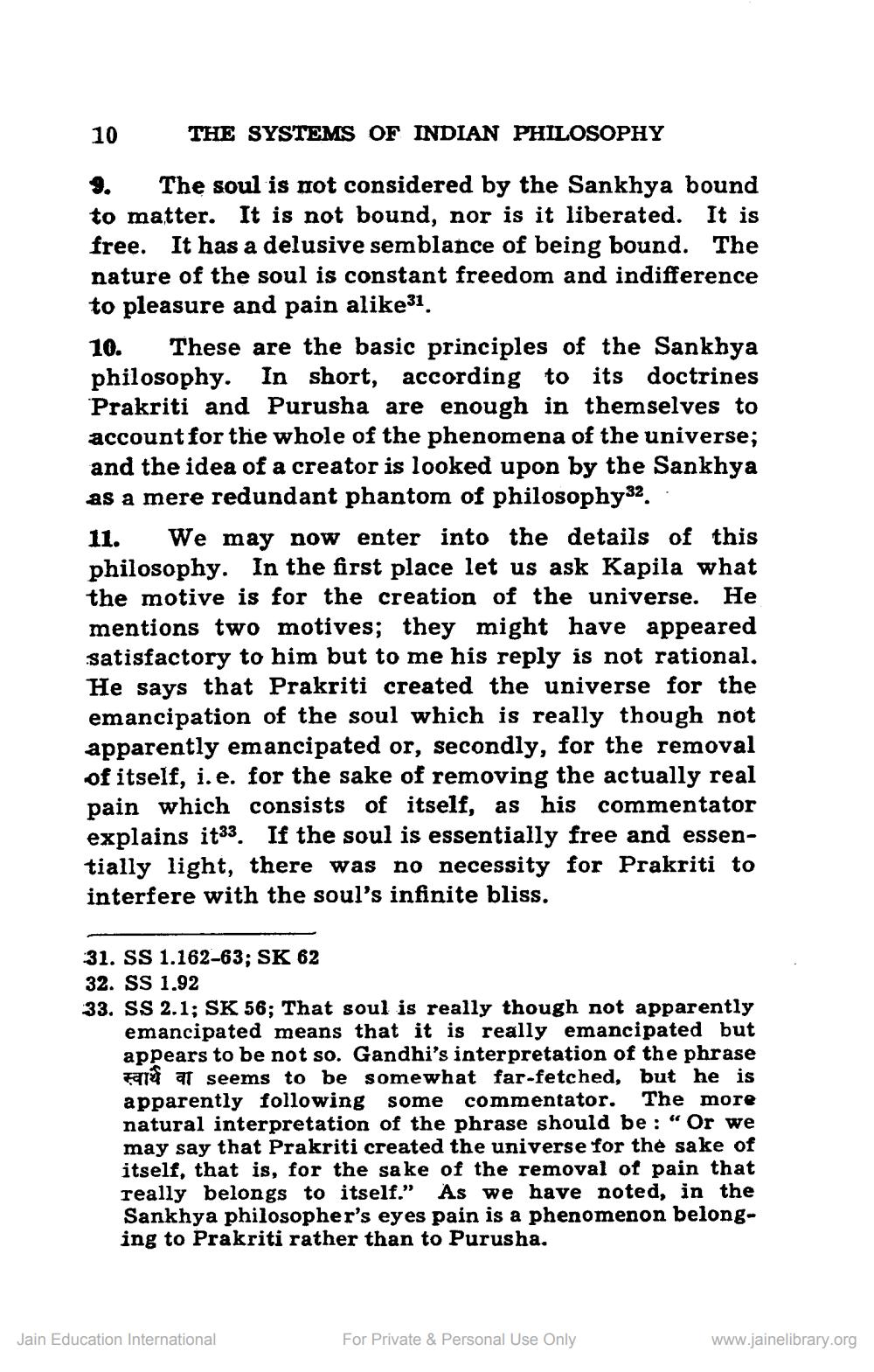________________
10
THE SYSTEMS OF INDIAN PHILOSOPHY
9. The soul is not considered by the Sankhya bound to matter. It is not bound, nor is it liberated. It is free. It has a delusive semblance of being bound. The nature of the soul is constant freedom and indifference to pleasure and pain alike31. 10. These are the basic principles of the Sankhya philosophy. In short, according to its doctrines Prakriti and Purusha are enough in themselves to account for the whole of the phenomena of the universe; and the idea of a creator is looked upon by the Sankhya as a mere redundant phantom of philosophy32. 11. We may now enter into the details of this philosophy. In the first place let us ask Kapila what the motive is for the creation of the universe. He mentions two motives; they might have appeared satisfactory to him but to me his reply is not rational. He says that Prakriti created the universe for the emancipation of the soul which is really though not apparently emancipated or, secondly, for the removal of itself, i.e. for the sake of removing the actually real pain which consists of itself, as his commentator explains it33. If the soul is essentially free and essentially light, there was no necessity for Prakriti to interfere with the soul's infinite bliss.
31. SS 1.162-63; SK 62 32. SS 1.92 33. SS 2.1; SK 56; That soul is really though not apparently
emancipated means that it is really emancipated but appears to be not so. Gandhi's interpretation of the phrase 799 at seems to be somewhat far-fetched, but he is apparently following some commentator. The more natural interpretation of the phrase should be: “ Or we may say that Prakriti created the universe for the sake of itself, that is, for the sake of the removal of pain that really belongs to itself." As we have noted, in the Sankhya philosopher's eyes pain is a phenomenon belonging to Prakriti rather than to Purusha.
Jain Education International
For Private & Personal Use Only
www.jainelibrary.org




